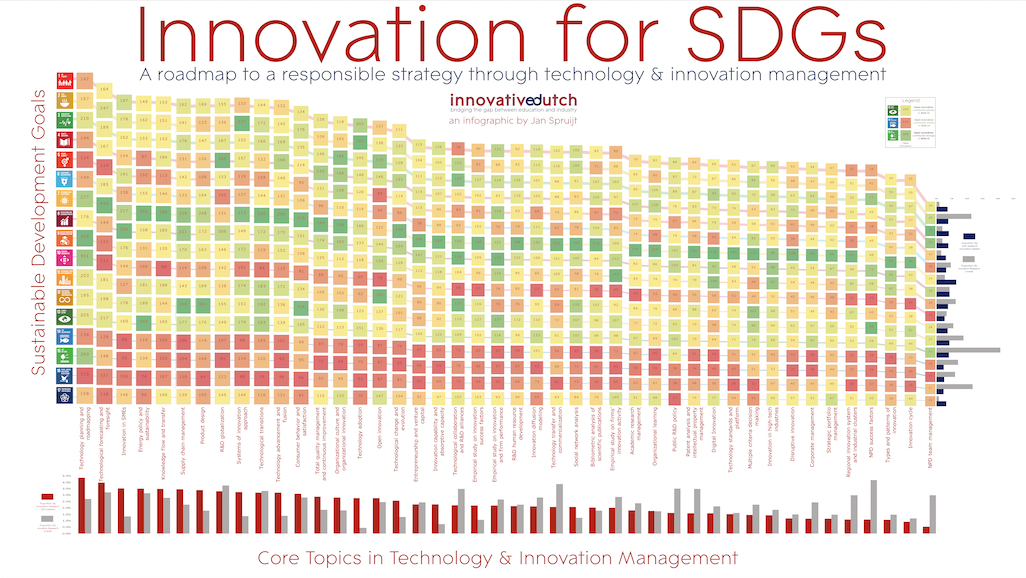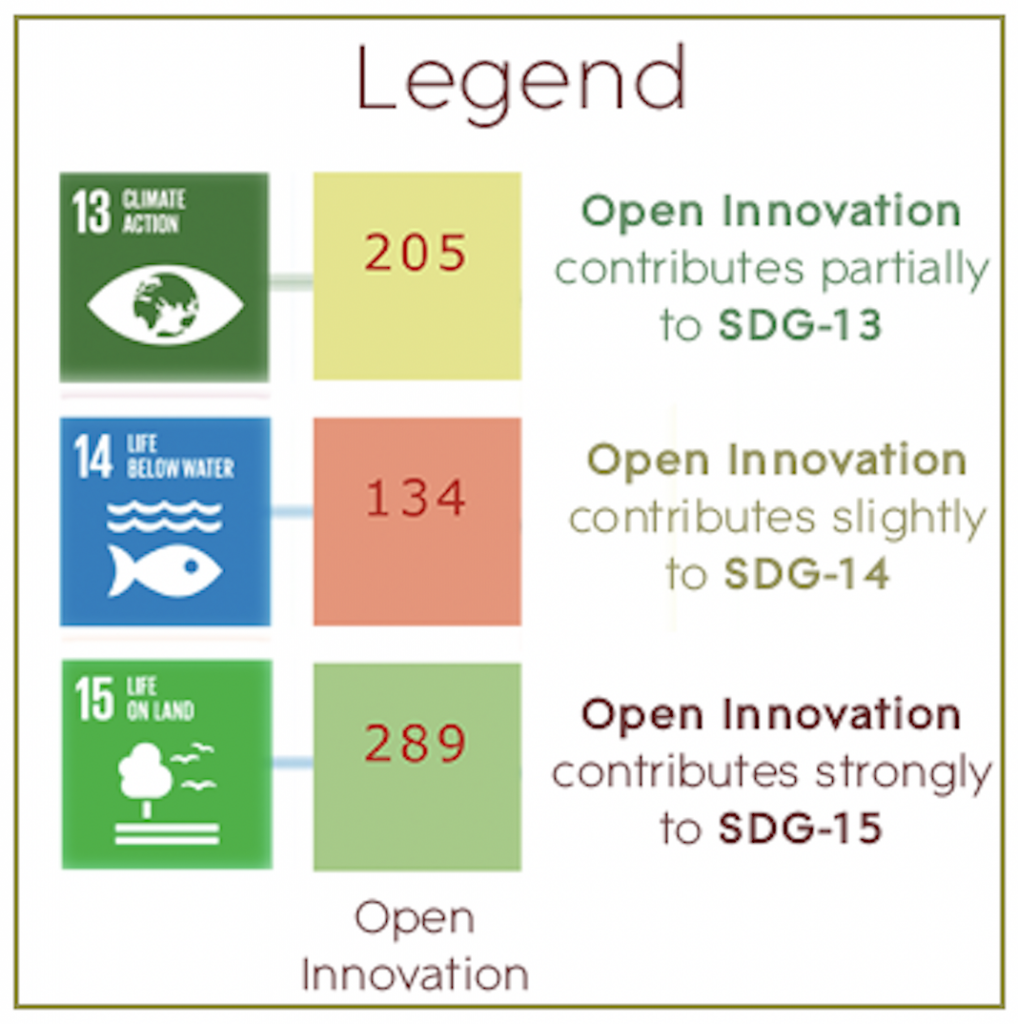After its introduction by the United Nations in 2015, the Sustainable Development Goals (SDGs) have started to become increasingly accepted and embraced by both the public sector and the private sector as the ‘horizon’ to focus on when it comes to this world’s grandest challenges. Over the years, public institutes have operationalized and committed themselves to the 17 SDGs – and its 169 measurable targets. In their ambition to be sustainable, large corporates have embedded the SDGs in their annual reporting cycles and have started to (incrementally) change their behaviour for the good.
It is widely accepted that innovation and entrepreneurship are in high need to address these challenges. Innovation and emerging technologies, such as artificial intelligence, will guide the way to a better world. It is therefore that SDGs have become a prior field of interest in science, both in social sciences as in more innovation-related sciences. We believe that developments in science – not in the last place sponsored by large corporates or subsidized by public institutes – will lead to future developments in the private sector. In that way – science will guide us towards are more sustainable world.
Over the years, public institutes have created dozens of dashboards to monitor SDG progression. But what is missing, in my opinion, is a transparant overview of the direction that innovation science is heading to – in relation to the SDGs. This is important, because it will help business to formulate a roadmap towards the sustainable development goals – based on the newest innovation & entrepreneurship insights from science. In other words: if you – as an innovative organization – are looking for a way to increase your contribution on SDG [x], you want to know what innovation practices will help you to get there.
For this new infographic, I have (bibliometrically) analyzed >52100 papers that discuss at least 1 of the SDGs and discuss at least one of the 50 most common innovation practices – a list that was created by Lee et al in 2017. Please find the infographic below – you can download it as part of our Innovation Toolbox.

This infographic is part of the book Innographics: A Visual Guide to Innovation Management
Download a 32-page preview for free
Including 2 infographics, 2 chapters and an overview of 28 innographics.
☑ I agree with opting in for the newsletter, our terms and privacy policy.

Core Topics in Innovation Management
The infographic includes a list of core topics in innovation management. The list is as follows:
- Technology planning and roadmapping
- Technological forecasting and foresight
- Innovation in SMEs
- Energy policy and sustainability
- Knowledge flow and transfer
- Supply chain management
- Product design
- R&D globalization
- Systems of innovation approach
- Technological transitions
- Technology advancement and fusion
- Consumer behavior and satisfaction
- Total quality management and continuous improvement
- Innovation cycle NPD team management
- Types and patterns of innovation
- Organizational culture and organizational innovation
- Technology adoption Open innovation
- Technological change and evolution
- Entrepreneurship and venture capital
- Innovation capability and absorptive capacity
- Technological collaboration and R&D alliances
- Empirical study on innovation success factors
- Empirical study on innovation and firm performance
- R&D human resource development
- Innovation diffusion modeling
- Technology transfer and commercialization
- Social network analysis
- Bibliometric analysis of scientific publications
- Empirical study on firms’ innovation activity
- Academic research management
- Organizational learning
- Public R&D policy
- Patent analysis and intellectual property management
- Digital Innovation Technology standards and platform
- Multiple criteria decision making
- Innovation in high-tech industries
- Disruptive innovation
- Corporate management
- Strategic portfolio management
- Regional innovation system and industrial clusters
- NPD success factors
For this infographic I have analyzed how often each Core Topic is researched in combination with at least one of the SDGs – and summarized that in a heatmap as follows:

Findings
There are some interesting findings that come out of this process:
- When comparing the results of this study with generic research into SDGs – we can see that normally SDG 13 (Climate Action) is – by far – the most researched topic by scientists. However, when only looking at the Innovation-related papers, it is SDG 7 (Affordable and Clean Energy) which is most researched.
- When comparing the results of this study with generic innovation research (not necessarily SDG-related), we find that there are quite a lot of topics that are not especially interesting for scientists in general, but do bring scientists together when it comes to SDG-research. For instance: the role of SMEs, systems of innovation, roadmapping and technology mapping, technology adoption and absorptive capacity: many of them related to a) how innovation is introduced in third-world countries (frugal innovation) or b) how innovation can be successful in highly complex systems.
I’d love to hear what else you find when looking at the infographic!
Dear Jan Spruijt,
this are great insights. I would love to learn more about it and how we can cooperate.
All the best
Nicolas